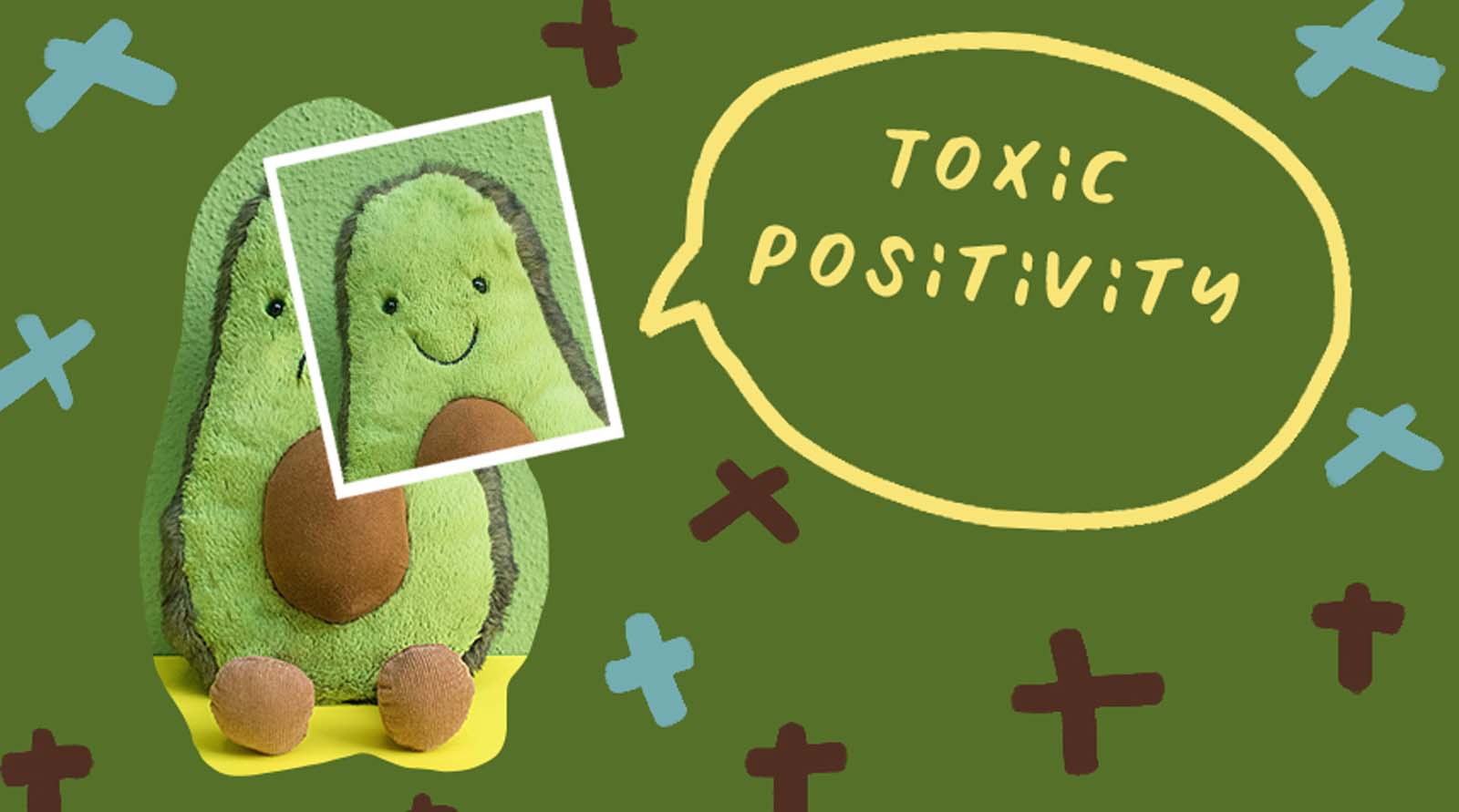TLDR: Burying our friends and ourselves with positive quotes when we are down can hurt. Active listening is one way to avoid toxic positivity
Heard Or Said Something Similar?
“Everything will be fine.”
“This too shall pass.”
“Good vibes only. Stay strong, jia you*!”
Social media rewards us for positively curated stories. This has created new challenges in how we manage the emotions of others and ourselves.
Toxic positivity: The forced blanket positive response to all difficult situations. The firm belief that keeping positive is the sole way you and others should live your life.
Though being positive is important. It is also important to let yourself experience difficult feelings. Here’s why toxic positivity is an issue and how we can be part of the solution.
Positivity Is Great.. So How Does Toxic Positivity Harm Us?
Positivity is important to keep us going in life. No doubt. ‘Focusing on what is good, will bring good’ we are taught. But like all things, e.g. Pandan Cake 🍰 , too much of something is not desirable.
Positivity becomes toxic when one rejects anything that triggers negative emotions and replaces it with positive motivational quotes or ‘vibes’. This habitual response to negativity has been found to create anxiety, depression or physical illness.
Ever tried to tell a panicking person to ‘stay calm’? I hope you didn’t!

Toxic positivity is not just an issue for your mind and body. It is an issue for others. Pushing it on others also makes you seem tone death.
The receiver of your ‘positive vibes’ comments may even start to feel bad about feeling bad. The last thing they need.
When we deny unpleasant emotions, we tend to make them bigger. Avoiding all negativity also reinforces the idea that we need not pay attention to it. This leaves it unprocessed in our psyche.
We slowly forget that emotions are not inherently good or bad but rather a guide in how we should make sense of things.
Signs of Toxic Positivity
These are some common experiences of toxic positivity to help recognise them in yourself and others.
- Trying to ‘snap back to reality’ by saying (e.g., “it could be worse”) instead of validating their/ your emotional experience
- Telling someone off for expressing frustration or anything non-positive
- Hiding your true feelings and wanting it to be ‘over asap’
- Attempting to “just get on with it” by dismissing strong emotions
- Feeling guilty/ angry for feeling down.
- Responding to people’s experiences with “feel good” quotes or statements about positivity

Detoxing The Toxic Within Us
“To stay with a broken heart, with a rumbling stomach, with the feeling of hopelessness and wanting to get revenge — that is the path of true awakening.” Pema Chodron
It is easy to accept the pleasant people and situations of life. However, being able to accept the difficult people and situations is the path of spiritual growth. We find a place for deep healing and peace within ourselves.
Here’s what we can do for ourselves.
- Give yourself permission to feel negative and positive emotions.
- Journal about the emotion or sit with the emotion (if you can!).
- Slowly uncover the cause and see what can you do to support yourself better in the future.
- Talk to friends about it unreservedly.
- Take a walk in nature to breathe in the fresh air
Detoxing the Toxic Towards Others
Being a lover of excel tables, this is a cheat sheet to help improve the ways we talk to others having a bad time. Being an “ex-serial toxic positivity promoter”, this table saved me dozens of time!

Summary
No one can be a bursting ray of sunshine every day and every hour. Accepting that it is only human will help you acknowledge the setbacks faced by yourself and others. Paying attention and processing negativity will help you better understand yourself and those around you.
*A popular Singapore term for encouraging others in difficulty
Wise Steps:
- Memorise the chart of toxic positivity and avoid the traps you might fall into
- Do not be afraid to acknowledge the negative emotions within you!


